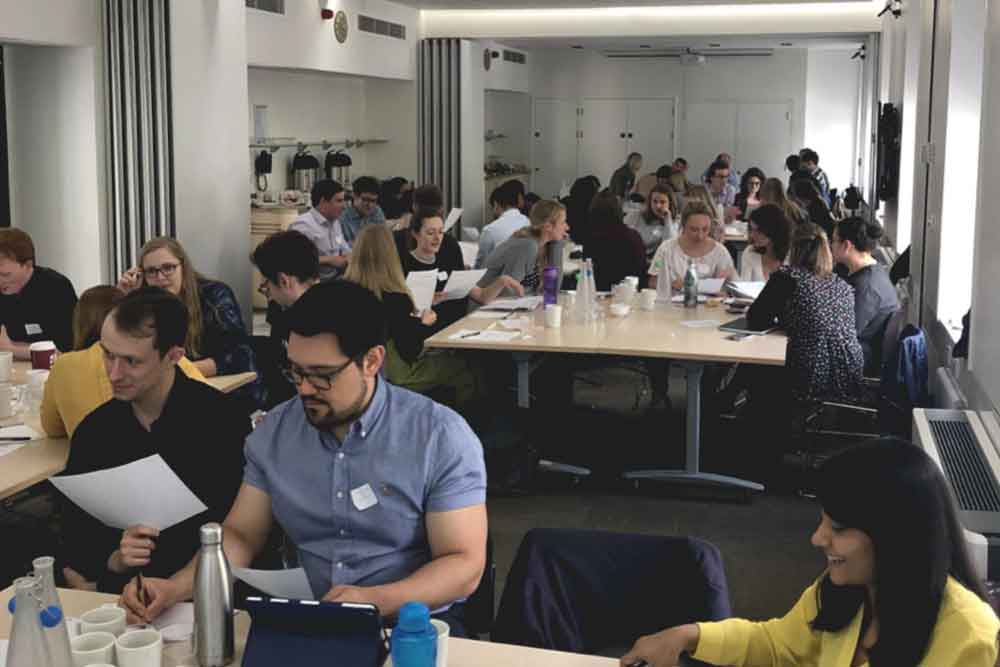Feedback on the London HCS Trainee Network OSFA Workshop
The London HCSTN hosted an OSFA workshop on 26th April 2019. I hope all who attended found it as interesting and informative as I did, but for those who couldn’t make it – read on to hear more!
- Published on
- 17th May 2019
- Filed under
- STP, Trainee Network Group
This article was supplied by Catherine Redshaw.
Before we begin – what actually is the OSFA?
The ‘Objective Structured Final Assessment’ (OSFA) is a tool for assessing the practical skills trainees should have mastered prior to registration as a Clinical Scientist. They consist of 12 stations (9 specialist and 3 generic) and are designed to reflect routine practice in the workplace.
The OSFA workshop
The day focused on the generic section of the OSFAs. There was a great turn-out, with around 65 attendees from many specialisms across London.
First, Dr Frances Boa presented ‘An assessors point of view’ where she delivered an overview of what the OSFA entails along with what assessors are looking for. Next, Clare Anderson provided more helpful tips for the OSFAs. This was followed by a Q and A session with trainers and assessors where we used Sli.do to ask any burning questions, no matter how big or small. Lots of questions were answered and this session was greatly appreciated and received a very high rating on the feedback forms!
After some further discussions, we worked in groups of three to create our own generic OSFA stations. We were given time to write a question based on the professional practice competencies and then formulate an answer. The assessors circulated, giving hints and tips on structure and content on how to write a station. In the afternoon, we had a go at answering the questions other groups had prepared. One person acted as the trainee, another as assessor and the third as actor (if required). We had 12 minutes to attempt each question to practice answering at a suitable pace (12 minutes either feels really long or short – but I guess that depends how well the station is going!). It would of course be great to have real past OSFA questions with example answer schemes, but these are a tightly kept secret.
Overall, I found the event really useful. Here are the tips I found most valuable:
- Don’t forget the basics of an answer. Read through the question properly and think of how you would approach the situation in the workplace.
- Ensure to understand the workings behind what we do (such as calculations). When working out an answer, speak aloud so assessors can hear your thought process.
- Try to forget previous stations when moving on! Don’t get hung up on the past one if you believe you didn’t perform well.
- The assessors can’t give anything away so don’t be put off by their straight faces or if they make notes.
- Assessors cannot give extra hints or re-word questions.
- There are no ‘killer questions’ – if a correct answer is required to move to the next section of the station, assessors will provide it if necessary.
- To pass, we need to be minimally competent – i.e. safe to practise.
- The assessors assured us they want to us to pass and OSFAs are not something to be feared – though this will be hard to remember on the morning of!
The day ended with some well-earned drinks in a nearby bar, a great way to celebrate a successful event. Good luck to all the third years with OSFAs coming up soon – and for first and second years, I’ll see you at mock OSFA 2020!
P.S if you attended the day you should have received a copy of the presentations and trainee written questions – if not feel free to email us.
Remember the National School’s website contains loads of information about the OSFAs and you can receive support from us and the National School if needed.
